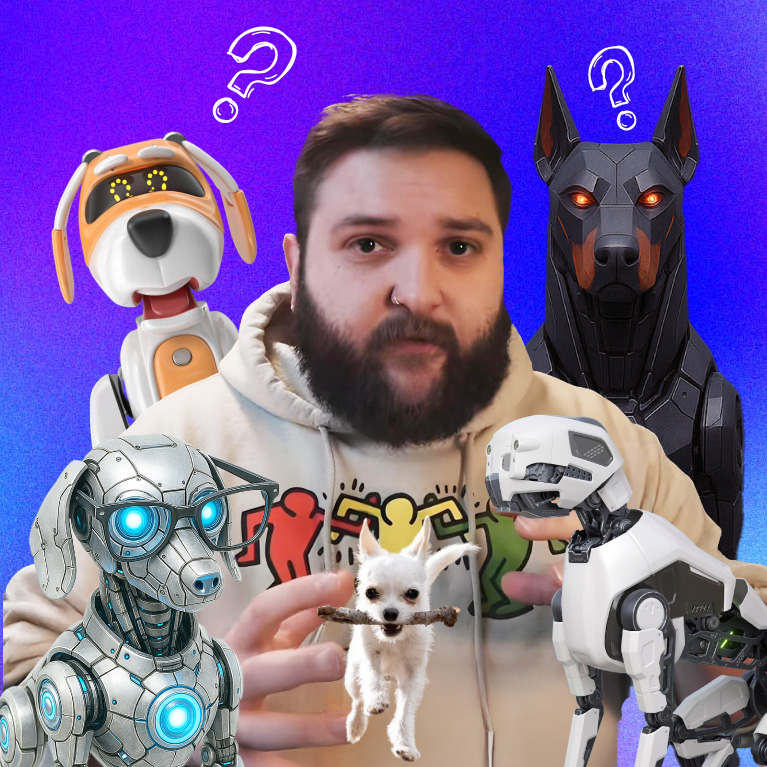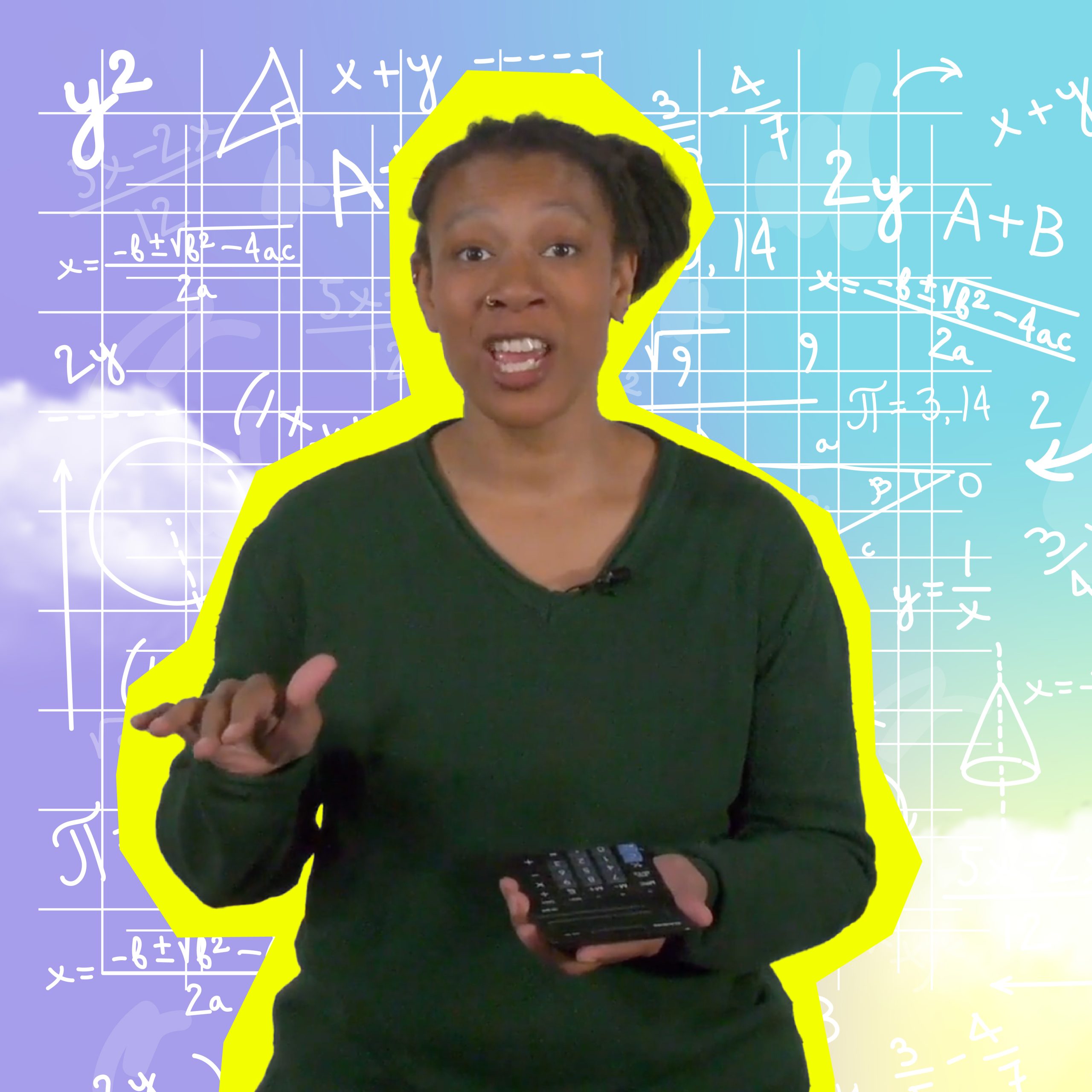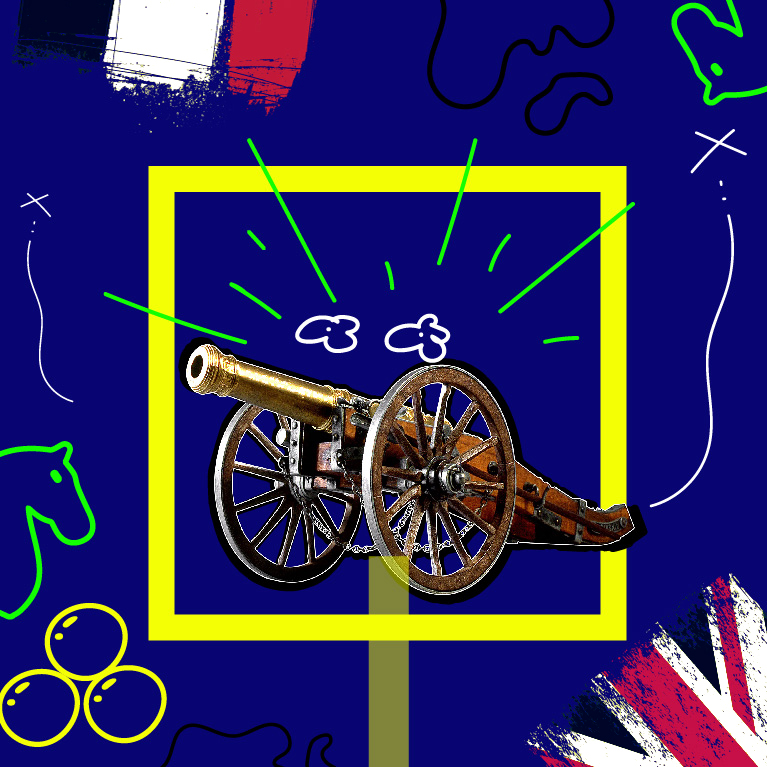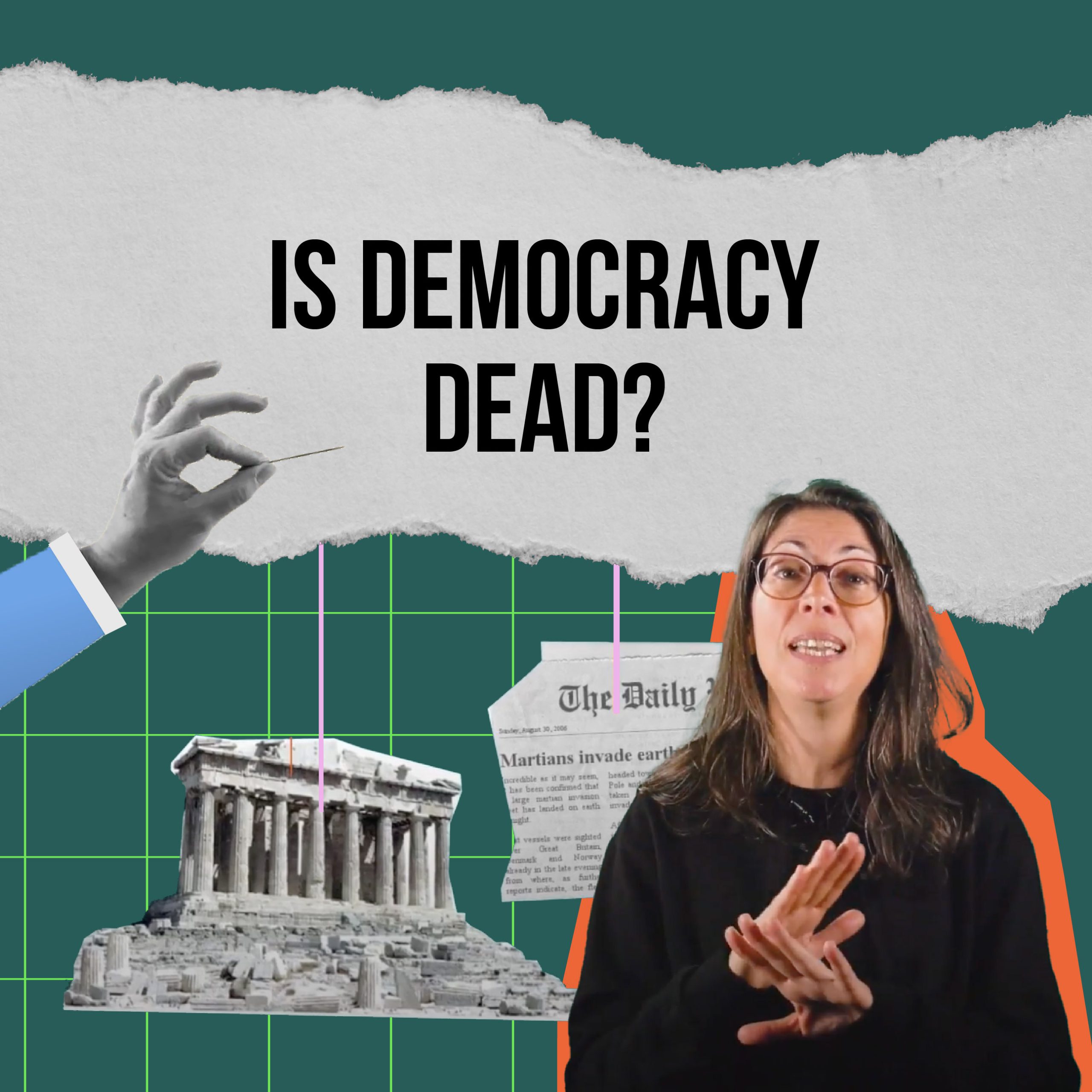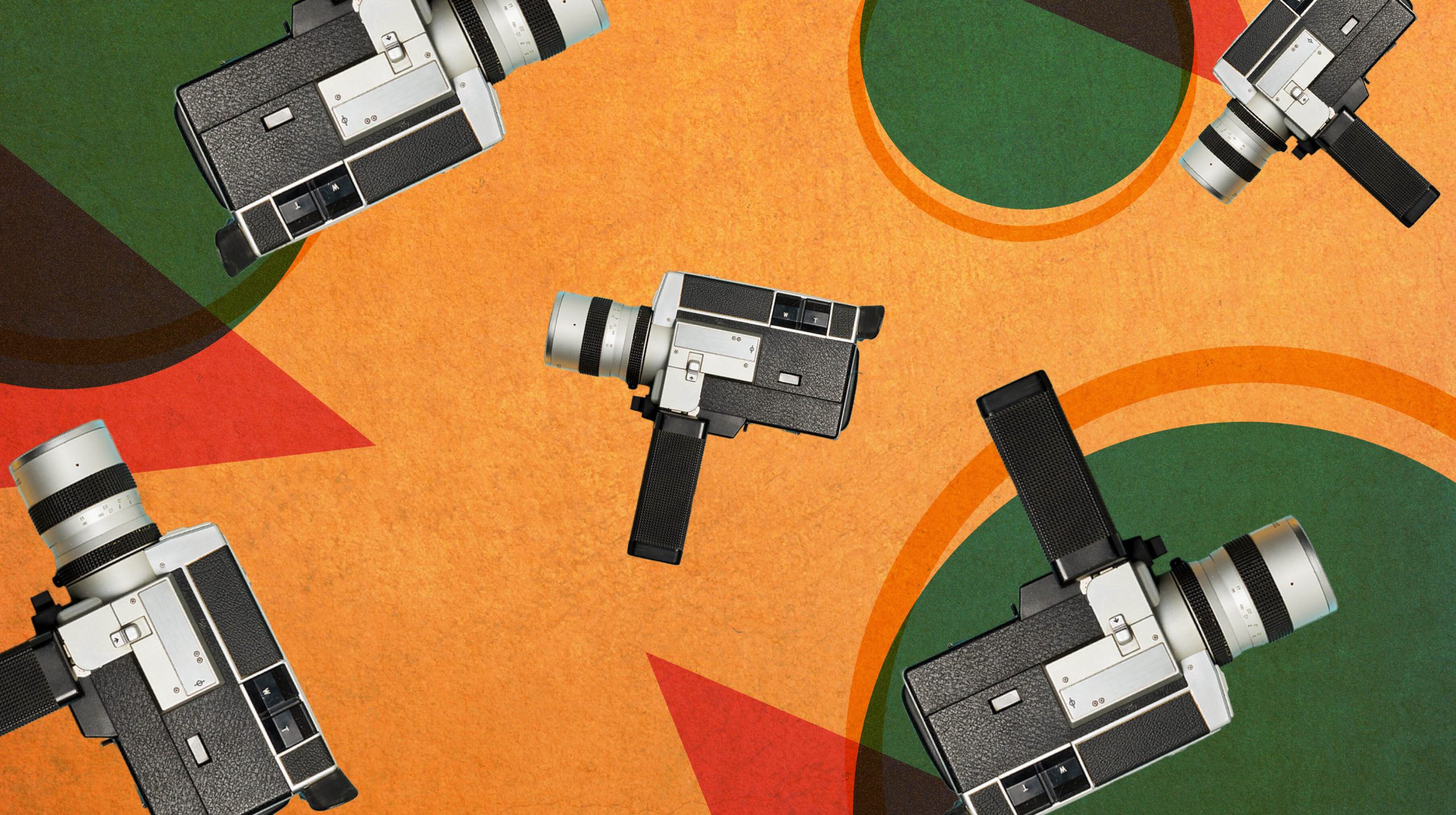

How Stories Hack Your Brain
How Stories Hack Your Brain
Humans are the only animals that have literature. The ability to create and care about stories and characters who never existed – and to technically immerse ourselves in lies – is uniquely human. How and why did humans develop this extraordinary taste for fictions, and what does it say about our species?
Transcript
When you think about it, literature is basically a reservoir of stories about what it means to be human – whether it’s Sophocles’ plays, the Harry Potter books, or Maya Angelou’s poetry. When we read all those words printed on paper or loaded on an e-book, they become worlds in our imagination. They may be impossible worlds that never existed, peopled by characters who aren’t real, but we find ourselves caring about them. Sometimes, we don’t even want a book to end and we’re sad to leave the characters, even though we know none of it is real.
Other animals don’t have literature. Chimpanzees have a language of calls and gestures, but they don’t tell tales about brave and famous chimps. Dolphins communicate using a huge variety of sounds, but they never tell stories about dolphin explorers 20,000 leagues under the sea. The ability to create and care about stories featuring characters who never existed is uniquely human. This video will explore how and why humans developed this extraordinary taste for stories, and what it says about our species. So, what’s the story with literature?
It’s hard to pinpoint when exactly people started telling stories, and we don’t know if this is something that other human species, like Neanderthals, did. But in some places on earth, where groups of people have been living in relative isolation from the rest of the world, it’s possible to find traces of very old stories.
The oldest story that we know about comes from the Gunditjmara people in south-eastern Australia. It’s a story we may relate to in the 21st century because it’s about an environmental catastrophe. It goes like this: in the time before time—a time called the Dreaming—four giants walked the land, creating the earth along the way. One of them squatted down and was transformed into a mountain. Then one day, he opened his mouth, and his blood and teeth turned to lava spilling out over the land.
Geologists have found signs of a massive volcanic eruption in this area around 37,000 years ago. It’s not clear whether any humans lived there at the time to witness the eruption. But if they did, then this story of a giant becoming a volcano may very well be older than the hunting stories depicted in the ancient paintings discovered at the Chauvet Cave in France.
There are also Australian myths about gigantic monsters that used to roam the country, and scholars have pointed out that for thousands of years after humans reached this continent, there really were monsters there: giant venomous lizards, snakes as long as shipping containers, and terrifying birds that stood taller than basketball players.
Other ancient creatures inspired some of humanity’s earliest stories. Researchers have noticed that mammoth bones assembled in a certain way look a lot like giant humans. Could our ancestors have chanced across these fossilized remains and this was what inspired their myths about giants that once walked the earth? What we call mythology might just be our first attempts at paleontology. Ancient Greeks and Hebrews who found fossils must have wondered what they were, and where they came from… and their attempts at explanations became the stories of the Greek Gods and Titans, and the Hebrew Nephilim.
These early examples of what we now think of as literature have other things in common. Before they were written down, epic poems like Homer’s Iliad or the Ramayana were passed down orally. In many cases, it’s likely that the earliest literature was actually sung, or at least recited to music. Along with the invention of rhyming patterns, the rhythm of the music helped ancient poets remember so many lines. A survey of ancient epic poetry from around the world found another common feature: most of the lines take about three seconds to recite. This is the length of human short-term memory so that’s as long as lines can get before people start forgetting how they began. Which means poems were shaped by the poet’s evolutionary heritage: the capacity of the human brain to remember and the ability of the mouth and tongue to sing.
Ancient poetry performances weren’t just shaped by the human brain, they also affected their listeners’ brains. Exposure to the ritual performance of poetry can trigger the release of neurochemicals and can even induce altered states of consciousness. This shared experience among listeners probably bolstered a sense of community and identity. Those poets were hacking their listeners’ minds!
But things really took off with the invention of writing. In the third millennium BC, works of literature were written down for the first time in places like Mesopotamia and Egypt. From then on stories and poems weren’t constrained by the limitations of human memory. They could grow in length and complexity, and authors could devise a whole tool kit of ways to keep their readers’ attention, such as metaphors, similes, symbolism and irony.
But what was the motivation, what was this early literature for? Was it just a record of past battles and heroes? Or did it explain religious beliefs?
According to some researchers, people told stories for pure enjoyment. But there are plenty of stories that make people cry. If telling stories was about feeling good, why have tragedies always been so popular? To this day, people love watching Shakespeare’s Romeo and Juliet, and TV series like Breaking Bad, even though the main characters – spoiler alert! – die at the end.
Another theory argues that literature teaches us to live moral lives. But some of the most popular characters in literature are awful people. John Milton managed to make the Devil himself a likable figure! Literature is full of people behaving badly who still earn our sympathy and affection.
Perhaps, then, we have literature for the same reason we have dreams: because our minds are hyperactive and love exploring new scenarios. Even little children who have not yet learnt to speak love being told stories, so a delight in fiction may be hardwired within us. And perhaps, stories help our conscious mind make sense of the world, as dreams do for our subconscious. The philosopher Aristotle coined the term ‘catharsis’ to describe the feeling of relief that can be triggered by powerfully emotional art whatever form that emotion may take. Maybe that’s why sad stories can sometimes make us feel good. Maybe learning to sympathize with the Devil actually makes you a better person… Or maybe it’s a combination of these things.
In any case, in the age of online media, we are still eager story seekers, but many, many more of us have become the storytellers. Poets aren’t the only ones hacking people’s brains with the mind-altering effects of language: anyone with a keyboard can have a go. This raises some big and interesting questions: Which stories are worth our time and attention? Where is the line between fact and fiction? What qualifies as literature? And will readers abandon books in favor of the collective stories created on social media? One thing’s for sure: words are as powerful as they ever were and can shape the world around us.
Questions for reflection and discussion
The following questions can be used for a group activity (in a classroom or otherwise) or for personal reflection after watching the video.
- What was the last book you read? Did you enjoy it?
- How many books do you read each year? Do you read more, or less, than you used to in the past?
- What is your favorite literary genre? Why do you prefer it?
- Can you name a novel, short story, or poem that changed your perspective on the world? How did it influence you?
- Is there a difference between a story told in a book and one told through other mediums, such as movies or TV series?
- The internet is filled with texts, most written by non-professional writers. Does this influence your perception of books? If so, how?
- Has social media affected your ability to concentrate on books or movies? If so, how?
- In your opinion, what qualifies as literature?
- Today, artificial intelligence can generate poems, scripts, and stories. Do you consider AI-generated literature as literature?
- Would you read a book or watch a movie written by AI? What are the differences between human-made stories and AI-generated ones?
- What might be the implications of using AI to write books or scripts?
- Do you think people will always read books?
